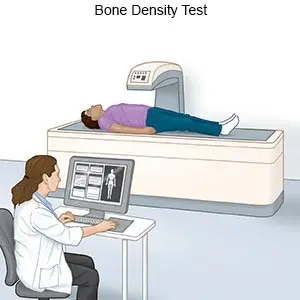What is binge eating?
Binge eating means you eat a large amount of food in a short amount of time. You may eat very quickly and feel out of control or like you cannot stop. You may feel an urge to eat that you cannot resist. You may have binge eating disorder if you binge eat at least 1 time each week for 3 months. Binge eating may also be called binge eating disorder.
What increases my risk for binge eating disorder?
Binge eating often begins in your late teens or early 20s. The following may increase your risk for binge eating:
- A history of childhood obesity, mood disorder, or negative family dynamics
- A family history of an eating disorder, obesity, or problems with substance abuse
- A history of frequent dieting
- A history of anxiety, depression, or obsessive-compulsive thoughts
- Not feeling good about your body
- Not having good relationships with family members, or stress or trauma
What are the signs and symptoms of binge eating?
- Not being able to stop eating, usually secretly or when you are alone
- Eating much faster than usual or until you are very full
- Eating a large amount of food when you are not hungry
- Eating alone because of feelings of embarrassment or shame
- Feelings of depression, disgust, or guilt
- Hiding or hoarding food in strange places
- Often being bloated and having constipation or diarrhea
How is binge eating disorder diagnosed?
Your healthcare provider will ask how many days you have binge eaten in the last month. Your provider may also ask if you binge every day or more than 1 time a day. Tell the provider how old you were when you first started. Your provider will check your height and weight and ask if you exercise. Tell the provider about any prior treatment for, or family history of, an eating disorder. You may have a hard time talking about your body. This is okay. Your provider may recommend you talk to an eating disorder specialist. The following tests can help your provider understand how binge eating may be affecting your body:
- Blood tests will show how well your organs are working, such as your liver and kidneys. Blood tests may also show conditions that may be causing weight gain. These include diabetes, high cholesterol, or sleep apnea.
- Urine tests may be used to check for signs of dehydration.
- Bone density pictures may show bone loss that binge eating can cause.

- An EKG may be used to check your heart's rhythm. Binge eating disorder can lead to heart rhythm problems.
How is binge eating disorder treated?
Binge eating disorder is a serious medical condition. Treatment is meant to help you develop a healthy relationship with food and your body image. You may also need treatment for health problems caused by binge eating. Your providers will work with you to help you make small, manageable changes. Your family members may also be involved in treatment to help you.
- Cognitive behavioral therapy (CBT) is used to help you learn the reasons you are not happy with your body. A therapist will help you change your thoughts about food, weight gain, and self-worth. You may learn how to identify negative thoughts and beliefs and replace them with positive thoughts and beliefs. You will also learn new ways to cope with events that trigger binge eating.
- Group or family therapy is an important part of treatment. Group counseling is a way for you to talk with others who binge eat. Family sessions can help your family members understand binge eating disorder and how to help you.
- Nutrition therapy means you will work with providers, such as a dietitian. Others in your family may also meet with the dietitian. Together you will develop a healthy meal plan. It is important to eat 3 to 5 structured meals a day to reduce the urge to binge. You might need to learn how to prepare healthy food. You might also need to relearn what it feels like to be hungry and full. You may be asked to keep a food diary and bring it to future visits.
- Medicines are sometimes used to help treat binge eating disorder or the health problems it causes.
- Regular exercise can lower your stress, improve your mood, and help decrease binge eating. Ask about the best exercise plan for you. Work with your providers to create exercise goals and a plan to reach them. For example, you can break exercise into 10 minute periods, 3 times a day. Find an exercise that you enjoy. This will make it easier for you to reach your exercise goals.
Treatment options
The following list of medications are in some way related to or used in the treatment of this condition.
- Vyvanse
- fluoxetine
- lisdexamfetamine
What can I do to care for myself?
- Be patient. Recovery from binge eating is a process that takes time. You may have a bingeing episode after a long period of healthy eating. This is common. Work with family members and providers to get back on track with healthy eating and healthy exercise. Try not to be angry with yourself for the episode.
- Focus on healthy self-esteem. Think about everything you like about yourself. For example, you may be a talented artist, or you may write well. Focus on those skills or talents instead of on appearance. Ask others not to comment on your weight or shape. Your provider can tell you healthy weight ranges for your age and height. It may take time before you are comfortable knowing your weight or seeing your weight as healthy. Remember your goals to build healthy self-esteem. Be patient with yourself as you change your thinking.
- Manage stress. Stress may increase your risk for a relapse. Take a break and rest for 30 minutes every day. Try different ways to reduce stress, such as yoga, meditation, journaling, or spiritual development.
- Practice mindfulness. This can help increase awareness of what triggers a bingeing episode. Identifying triggers is an important step in learning to control binges. Mindfulness can also help increase self-control. Keep a record of how you feel before you start a bingeing episode.
- Get enough sleep. A lack of sleep can increase your risk for irregular eating patterns. This may lead to a bingeing episode.
- Use a rating system to measure your hunger. Rate your hunger on a scale from 1 to 10. For example, 1 is very hungry and 10 is very full. Eat a meal when you are at a 3 to 4 and stop when you are at 6 to 7. The following may also help:
- Eat slowly over 20 to 30 minutes for a meal
- Do not eat while you are doing other things, such as watching TV, working, or driving
- Sit while you eat and try to eat with others
- Know that you can have more when you are hungry again
- Enjoy the food, do not consider any foods as off limits or forbidden
Where can I find support and more information?
- National Institute of Mental Health (NIMH), Office of Science Policy, Planning, and Communications
6001 Executive Boulevard, Room 6200, MSC 9663
Bethesda , MD 20892-9663
Phone: 1- 301 - 443-4513
Phone: 1- 866 - 615-6464
Web Address: http://www.nimh.nih.gov/
- The National Women's Health Information Center
8270 Willow Oaks Corporate Drive
Fairfax , VA 22031
Phone: 1- 800 - 994-9662
Web Address: http://www.womenshealth.gov
Call your local emergency number (911 in the US) if:
- You want to harm or kill yourself.
When should I seek immediate care?
- Your muscles feel weak, and you have pain and stiffness.
- You have severe depression.
When should I call my doctor?
- You are constipated.
- You have tingling in your hands or feet.
- You have new pain in your abdomen.
- Your monthly period is very light or has stopped completely.
- You have questions or concerns about your condition or care.
Care Agreement
You have the right to help plan your care. Learn about your health condition and how it may be treated. Discuss treatment options with your healthcare providers to decide what care you want to receive. You always have the right to refuse treatment. The above information is an educational aid only. It is not intended as medical advice for individual conditions or treatments. Talk to your doctor, nurse or pharmacist before following any medical regimen to see if it is safe and effective for you.© Copyright Merative 2023 Information is for End User's use only and may not be sold, redistributed or otherwise used for commercial purposes.




